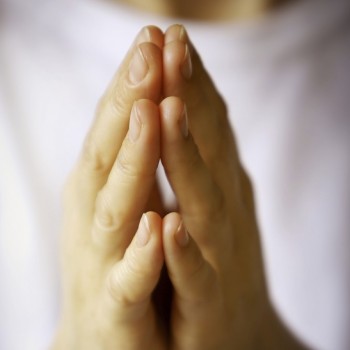 Recently I had a reason to revisit these sacred words from a prayer that gets repeated daily by more than 2 billion Christians on this planet.
Recently I had a reason to revisit these sacred words from a prayer that gets repeated daily by more than 2 billion Christians on this planet.
God to me is a synonym for goodness, love and compassion. So whenever I hear the Lord’s Prayer my mind goes to all the great illuminators, the great figures of wisdom who have shown the way for the rest of us. Extraordinary teachers and preachers who have been trying, for thousands of years, to show us a better life, a distant city on the hill. You know their names: Buddha, Confucius, Moses, Mohammad, and, for me, Jesus, though his life and deeds and words. In modern times, you could add the names of Mother Theresa, Gandhi, Martin Luther King, and Mandela.
I’ve always believed that when you pray for God’s will, you are praying simply for the strength and wisdom to choose what God would want you to choose. In other words, you aren’t praying for God to intervene in this world. You’re praying to enable yourself to do what God would have you do—in this world. God brings his Kingdom to this planet through each one of us, one tiny step at a time, in the choices we make every day, throughout the day.
But don’t all those choices slip away, once you’ve made them, leaving no lasting mark? How would the individual choices of millions, collectively, bring out something as enduring as a kingdom? That’s a question I couldn’t answer until recently, when I encountered the scientific field of epigenetics. This line of scientific enquiry has uncovered the way in which daily, habitual choice can shape in individual’s genetic code. It doesn’t alter the basic structure of a person’s DNA, but it alters the way a set of tiny genetic switches turn parts of the DNA on or off: in other words, your daily behavior teaches your body how to “play” your DNA, switching some parts on and other parts off. It’s possible that consistent daily behavior, for years, can alter a person’s DNA in ways that can be passed down through four generations. For 7 million years, our DNA has been shaped by the demands of life in a very brutal environment. As a species, we’ve been programmed through natural selection to be violent, deceptive, greedy, and tribal. During that period, biological evolution has been slow and incremental, advancing through random mutation. Yet epigenetics suggests that individual choice can have a significant effect on DNA, where the tissue of our own bodies holds a record of our behavior and preserves it for posterity. In essence, it’s a way of speeding up evolution. Consistently good behavior, over the years, can trigger our epigenes—those controller at one end of the DNA spiral—to shut down the parts of our genetic code that encourage narcissistic, mean-spirited action and make it more likely we’ll choose kindness and empathy. Over a long enough period, it’s imaginable that our past choices will make it far easier to become the people we most want to be—the sort of people we pray to populate that kingdom I mentioned earlier. Keep doing good, on a large enough scale, and the human species itself improves, transcending the brutality of its past, to some degree taking evolution in hand and guiding it through daily choice.
So the question is. Will enough of us choose to listen? Pay that God’s will be done on earth as it is in heaven and you are actually praying for the wisdom and power to choose just that. It’s up to you and me both. It will be a long, difficult road, if history is any indication. It might take generations and generations, thousands of years. Or it could happen overnight if enough people woke up to the need for a certain kind of goodness in their choices from day to day. To get there, we simply have to listen, and then hear, and believe, and act and pay close attention to what it is we’re choosing every moment of the day.
So what about tomorrow morning? As you and I wake up, will we commit ourselves to the first step, the first good choice, following by another, and another. I intend to try. How about you?